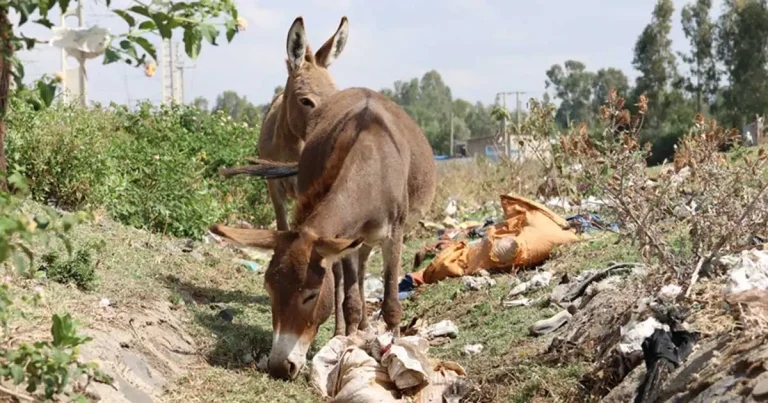31 Jul 2025
Donkeys are particularly vulnerable to health issues, according to animal welfare charity The Donkey Sanctuary.

Donkeys search for food among waste in Bishoftu, Ethiopia.
A new study investigating the impact of plastic pollution on terrestrial animals is to be conducted in Ethiopia.
The project – which is said to be the first of its kind and will commence early next year – is the result of a partnership between The Donkey Sanctuary and Addis Ababa University’s College of Veterinary Medicine and Agriculture (CVMA).
Researchers hope to comprehensively determine the extent of the issue, identify the key risk factors that predispose animals to ingest plastic, and generate evidence-based solutions that can be implemented sustainably.
Unlike the well-documented consequences of plastic ingestion on marine life, its impact on land animals is said to be little researched.
Just 21% of plastic waste in Ethiopia is recycled or incinerated according to its Environmental Protection Authority, resulting in much of it accumulating in landfills, roadsides, and bodies of water such as drainage canals.
Estimated at approximately 10.6 million, the country is said to have the largest donkey population in the world.
Vet Getachew Mulugeta, the Donkey Sanctuary Ethiopia’s senior lead for global research and education, said he was “pleased” to collaborate on the study because plastic pollution is a “worsening trend” becoming “a critical issue for donkey welfare” in Ethiopia.
He added: “Donkeys are among the most severely affected, as they are rarely supplemented with feed and are often left to roam freely, increasing their risk of ingesting plastic waste.
“These animals are invaluable to resource-limited communities in Ethiopia, and it is essential that we understand the impact of plastic pollution on their health and welfare.”